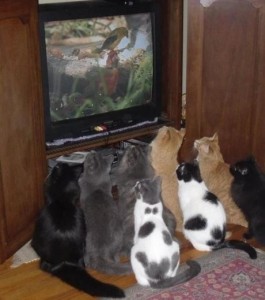Not every novel requires research. However, at some point, you will probably find yourself needing to do at least a little bit of research. If you are writing about a time or place that is not your own, if your character has a profession that you know little about that is key to the story or if you are writing about a particular group of people with whom you are unfamiliar, you may need to research more extensively.
Research does not have to be a time-consuming chore. In fact, an important principle of research is that you should only do as much as you need. Getting bogged down in research or substituting research for writing as a method of procrastination are not uncommon pitfalls for writers. The methods below can help you do the research that you need efficiently and effectively.
Make friends with librarians
In an age where the first place many people turn to for research is the Internet, brick-and-mortar libraries and librarians themselves are often overlooked as excellent sources of information. However, librarians can be far better than Google at quickly delivering reliable information. The profession has always been staffed by skilled researchers, and today, librarians are professionals who have access not only to online resources but to a wealth of information in books, journals, newspapers and more.
 Librarians can answer specific questions or they can lead you to the right resources if you need to do more extensive research on your own. Many libraries also subscribe to online databases on a variety of subjects that you may not be able to access from your home computer.
Librarians can answer specific questions or they can lead you to the right resources if you need to do more extensive research on your own. Many libraries also subscribe to online databases on a variety of subjects that you may not be able to access from your home computer.
For local research, libraries can be especially rich sources of material. Many libraries will not only have complete runs of local newspapers but other local archival material as well.
University libraries may have a particularly strong research collection and more extensive database access, and if there is one near you, you may be able to use some of its services depending on the policies of the university. There may also be librarians on staff who specialise in particular subjects.
Librarians in general tend to be knowledgeable on a number of topics, and you may find that just chatting with a librarian about the subject you are researching can lead you in a number of new directions. However, even if they are not personally acquainted with the topic, the fact that librarians can point you to the specific pieces of information or sources that you need can make this an easy research method.
Talk to people
People like to talk about themselves and the topics they are passionate about, and that’s one reason that speaking to experts on the subject you are researching can be one of the best and easiest ways to do research.
Be sure that you communicate clearly with the people who are helping you with your work. Find out how much time they have available to speak with you, and be sure that you do not overstep those boundaries. Prepare your questions for them ahead of time. If you plan to record the conversation, be sure that you have the interviewee’s permission ahead of time. If the research is related to the work a person does, you might be able to join them during their daily routine.
You may find it helpful to do some research on your own beforehand so that you are able to ask more in-depth questions or clarify points that you find confusing.
Go on holiday
When doing research, it doesn’t get much easier than this, and depending on what country you live in, you might even be able to claim a research holiday on your taxes. There’s no better way to research a place than to visit it yourself. This can be the case whether you are able to travel to the very place that you are writing about or to someplace similar. For example, if you are writing about a setting that does not exist such as a fantasy or science fiction setting, you obviously cannot visit that location. However, if your story is set in a desert or near an ocean, you can go to a similar landscape. Furthermore, even if your story is set in a different time, visiting the place where it is set can make your writing more vivid.
The key in combining research with a holiday is to be deliberate about how you spend your time. You need to do some advance preparation in which you are clear about your objectives. What do you need to know in particular about the place? Find out if there are places you need to visit or people you need to speak to for your research.
You also should be open to the unexpected. One of the strengths of visiting a setting for your novel are the small details that can give your reader a sense that they are right there in the story with your characters. Be sure to use all five of your senses in your observations so that you can bring the setting alive for your readers.
It’s also important to work out how you will take notes reliably and effectively. Whether it’s using a notebook and pen, a tablet or some other device, if you don’t choose a medium that is comfortable for you, you won’t keep notes as you need to.
Read more on researching place, especially when you can’t go there in person.
Watch some television
Like going on holiday, this must be approached deliberately. The quality of what may be available and how in-depth it will be can vary, but the scope of what you can access is very large.
Of course, your research does not have to be limited to television programmes. An enormous amount of material is now available online  including movies, documentaries and clips. You may be surprised at what you can find ranging from amateur film shot of cities in past decades, old newsreels and commercials, people’s home videos and more.
including movies, documentaries and clips. You may be surprised at what you can find ranging from amateur film shot of cities in past decades, old newsreels and commercials, people’s home videos and more.
As with other types of research, you should have a clear idea of what you are looking for. When it comes to searching for information in this way, it can be easy to get sidetracked. One way to avoid this is by making a note of any interesting videos that you come across that are unrelated to your work so that you can find them again and watch them without interrupting your research and writing time.
Use the Internet
It’s the first place many people go for information these days, and the Internet is still a particularly potent source of information. Furthermore, few research methods are simpler than typing a few words into a search bar and waiting to see what comes up.
However, while you should be cautious with all research methods, and you always need to check your sources, the Internet may be particularly unreliable for gathering information. Here are a few tips to keep in mind when you are using the Internet for research:
- Try to choose sources that are affiliated with universities, governments, established museums or other reliable sources of information.
- Check the dates on the information you have found, and make sure that it is reasonably current.
- Be sure that you confirm any information that you learn with other sources. Ideally, these will be offline sources. One reason for seeking offline sources is that misinformation may sometimes spread quickly across the Internet, and it can be difficult to trace that information back to an original reliable source.
However, with these precautions in mind, the Internet can be a rich source of information. Many museums and libraries are increasingly making their archives available online. This may be in the form of photographs, scans of manuscripts that are hundreds of years old and more. Forums, chat rooms and other more informal means of communication may also be rich veins for research.
A writer setting out to do research may be overwhelmed by the options available and wonder what the best approach may be. The answer to this depends on the nature of the research and the writer’s aims. If the writer’s protagonist works in law enforcement, there may be no better method of learning what that character’s work must be like than to spend some time with someone in that profession. Questions about obscure historical facts or complex scientific theories are best directed at experts in those fields. A writer who needs a good general understanding of the First World War might find a librarian the best source for recommending a few key texts.
What methods of research do you find the easiest and most successful for your own work?

